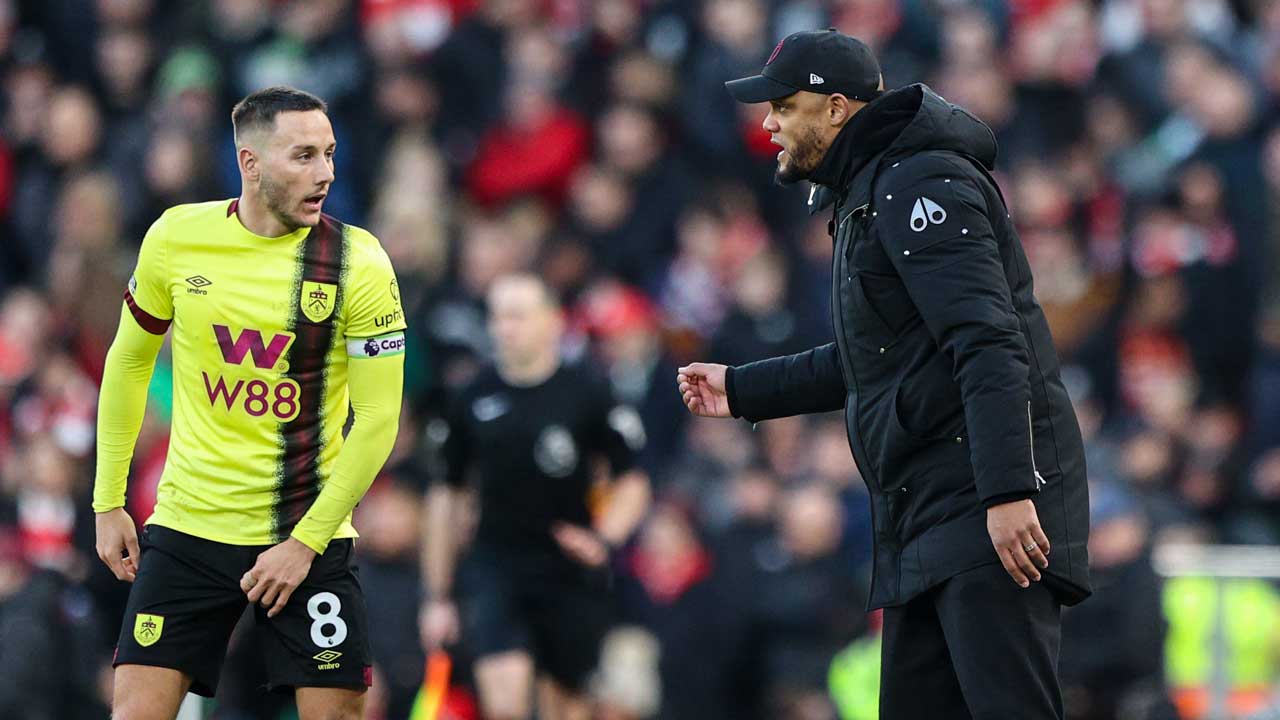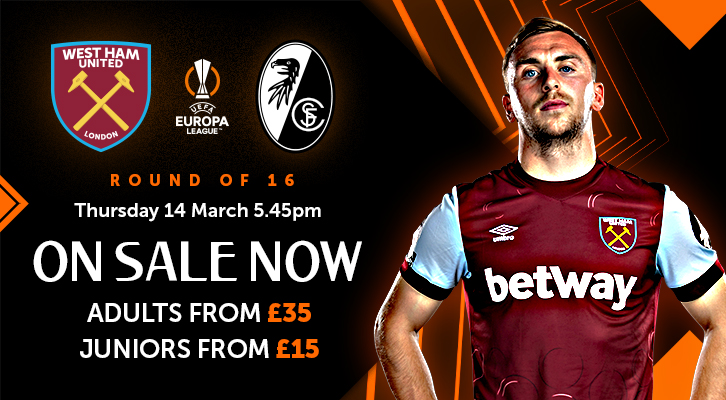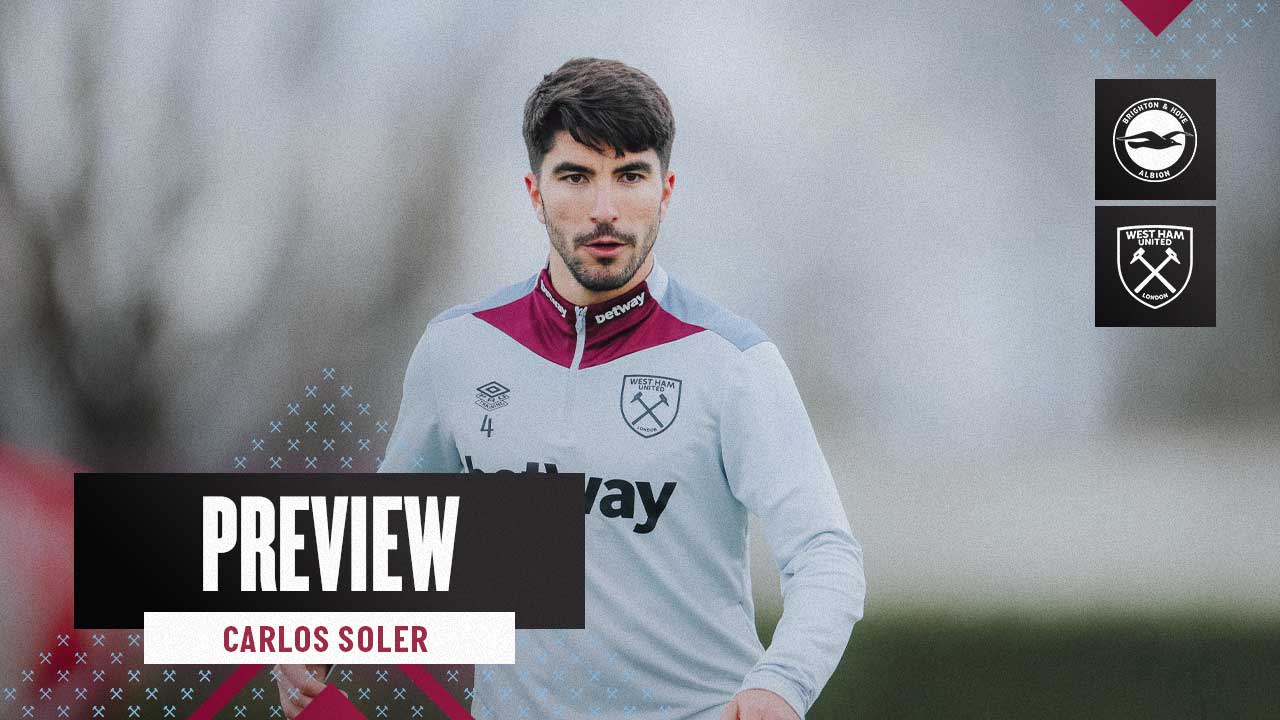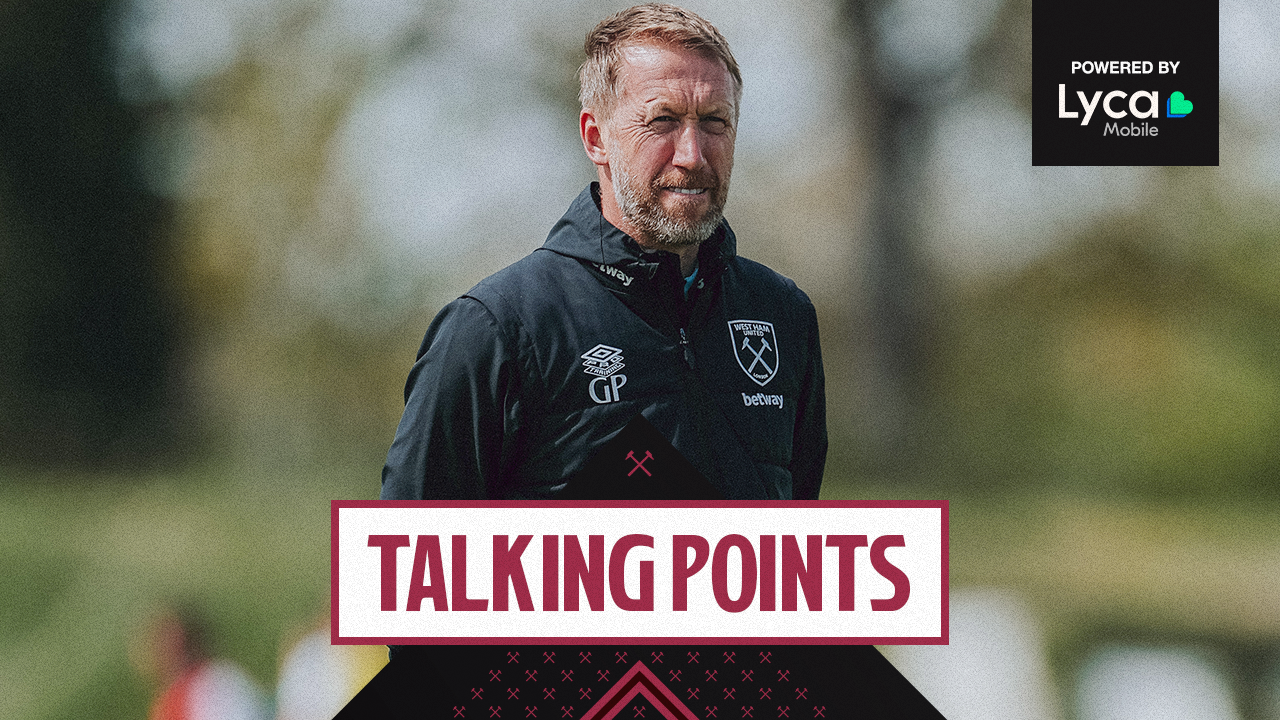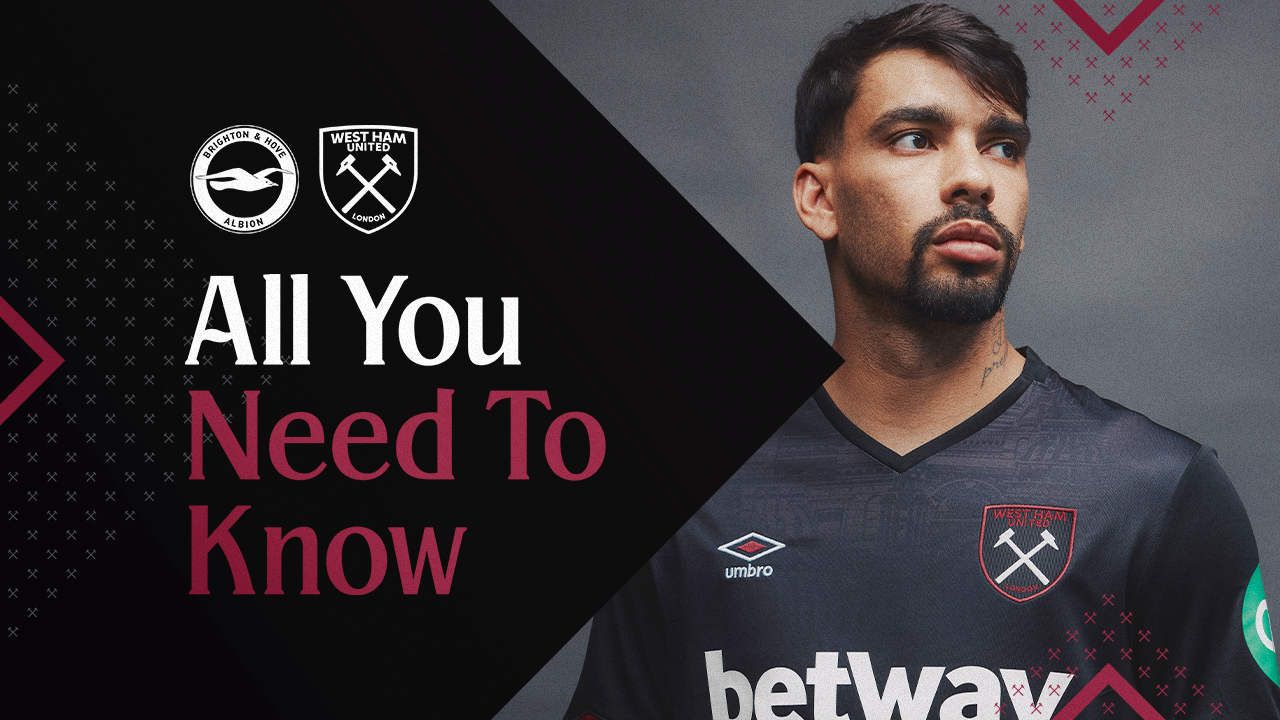Formed by Hammers supporters Jack Elderton and Callum Goodall to offer their fellow fans in-depth but accessible analysis of their team and its players, Analytics United use performance analysis and data to examine how David Moyes and Vincent Kompany could approach today’s game...
If not for the individual brilliance of Mohammed Kudus, Burnley probably would have just about gotten over the line when these two teams last met back in November at Turf Moor. The Clarets had taken the lead early in the second half when Luca Koleosho, one of the few bright sparks in a drab game, won a penalty and Jay Rodriguez converted...
But as the game entered its final stages, with Saïd Benrahma and Divin Mubama both making a positive impact off the bench for David Moyes’ team, Burnley sank back into a protective mindset and found themselves unable to defend a couple of wonderful late Kudus deliveries from the right and Tomáš Souček popped up in the box for the winner, as he so often has in West Ham colours.
Working out how to set-up against Burnley is difficult at the moment because, as Bournemouth manager Andoni Iraola noted before the Cherries’ game against them last weekend, Vincent Kompany’s team have been a little more direct in recent weeks.
Not to say they’ve compromised on the principles that led them to dominate the Championship last season and finish top with 101 points, but they have introduced a slightly greater element of pragmatism when trying to avoid leaving themselves quite so exposed at times against Premier League opposition.
Chelsea loanee David Datro Fofana has helped with this, as the Ivorian striker has scored twice and assisted once across his first six appearances, but unfortunately all three of those goal contributions came in his first two matches and he has failed to add to this across the following four games in which Burnley have conceded 13 and scored just one.
Fofana has also struggled in the air against Premier League centre-backs and his 27% aerial duel win rate so far will do little to help capitalise on the potential of more direct play when starting from an initially deep and narrow build-up unit.
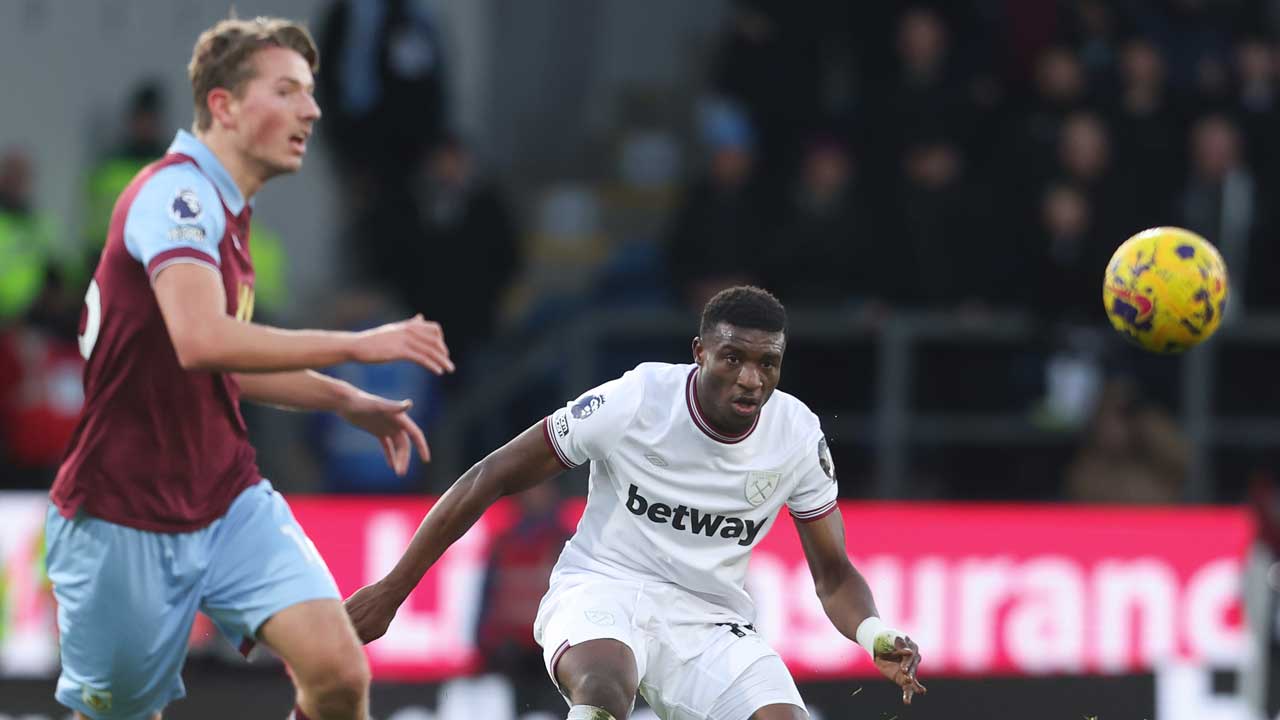
That deep build-up unit – a 3-2 with the centre-backs splitting either side of the goalkeeper and with two midfielders positioned narrowly ahead – could be a target for Moyes as one of the key comments on Kompany’s management this season has been his commitment to positive principles without necessarily having the requisite quality to implement and actualise those ideas in the highest quality league in world football.
Dara O’Shea, James Trafford, and January signing Maxime Estève have done their best to provide a solid base in possession but they haven’t always got it right and Crystal Palace reaped the rewards of pressurising this group in the gameweek before last when Jefferson Lerma nipped in front of Josh Brownhill to intercept a Trafford pass, forcing the midfielder into a foul that would see him sent-off. This ultimately resulted in a routine 3-0 victory for The Eagles.
Back in December, Unai Emery’s Aston Villa also found that they were able to effectively pressure that group with just three players as Ollie Watkins, Moussa Diaby, and Douglas Luiz slid from side-to-side covering both midfielders whilst always pressuring the ball-side centre-back.
That 5v3 should’ve given Burnley plenty of opportunity to play through but they weren’t able to find solutions and Villa were often able to force rushed long balls or hacked clearances that led to promising turnovers and counter-attacking opportunities. The Villans went on to win 3-2.
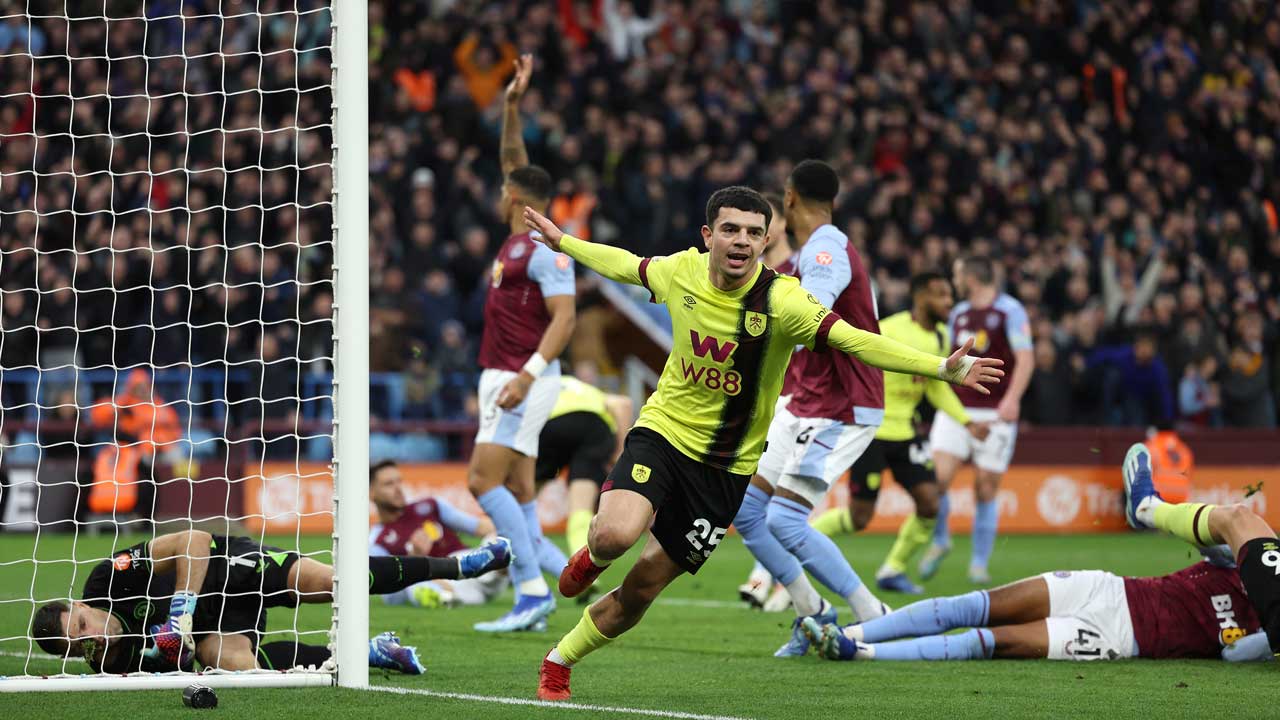
One thing that is constant across both games mentioned is the situational, or constant, usage of a back five to enable frontline pressure without compromising a number on the last line and opening a 5v4 for The Clarets to attack directly. Palace’s new manager Oliver Glasner utilised a 5-2-3 but Emery asked his wingers to stick to Burnley’s full-backs and, should one bomb on to complete the front five we so often see in the Premier League now, they were to go back with them and complete a back five that could match-up man-to-man. How could West Ham replicate this kind of approach without starting with three centre-backs and losing much-needed progressive quality in the middle of the pitch?
Perhaps the 4-1-4-1 we’ve seen previously this season (it was the system that Moyes used in the 3-1 victory at Brighton) could capitalise on Edson Álvarez’s positional flexibility – with the Mexican able to drop between or alongside the centre-backs – and enable the same kind of out of possession flexibility that could provide intense pressure without risking outnumbering at the back.
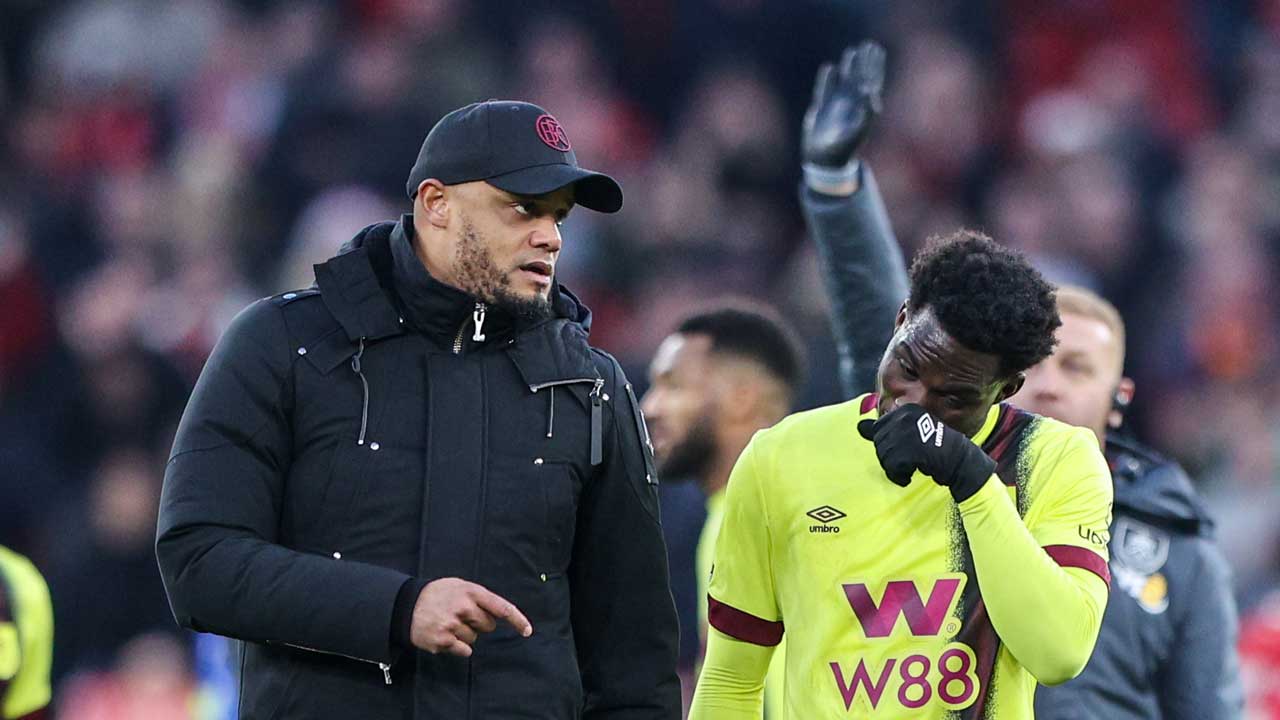
This combination would theoretically be crucial to creating the match conditions that can maximise home advantage by engaging aggressively out of possession without opening too many opportunities for a team like Burnley – who would love to dominate possession and sustain pressure in the final third – to cause huge problems with contrastingly staccato direct attacks. It would also allow a West Ham side stacked with physically strong players and counter-attacking dynamos up front to focus on out of possession strengths as a way to generate in possession advantages.
Pressing high to generate chances comes with risks but if the system can reasonably mitigate those risks with positional tweaks elsewhere then it can be hugely rewarding.
Though, if Burnley are to escape that initial press, then it would be advisable for Moyes’ side to disengage a little and let Kompany’s side struggle to convert possession into pressure and pressure into goals. We only have to look back to last week and Bournemouth’s adaptations to their usually gung-ho out of possession principles to see the advantages of ceding possession and countering ruthlessly – the Clarets had 75% of the ball but lost the game 2-0.
This is a must-win game if West Ham want to maintain pressure on the top six heading into what could be a complicated run-in with European football to balance alongside the Premier League, but Moyes’ team are well-placed to succeed after promising performances and results in the last two.
*The views and opinions expressed in this article are those of Analytics United and do not necessarily reflect the views opinions of West Ham United.
